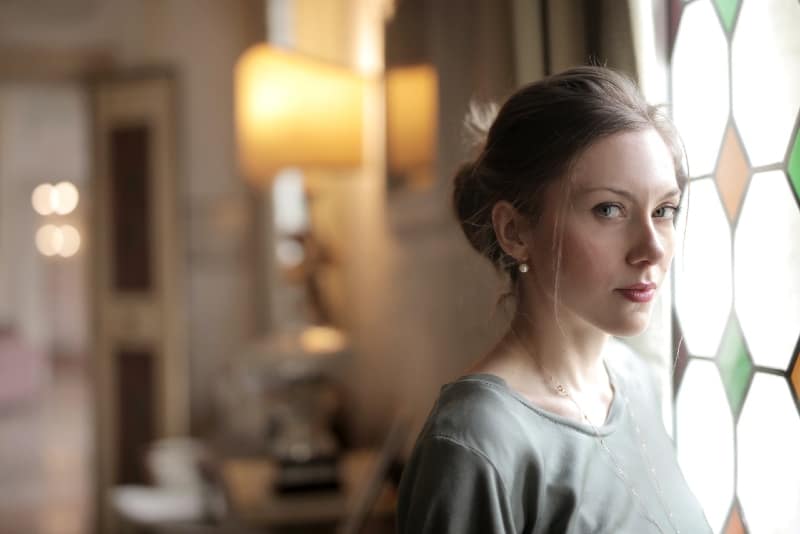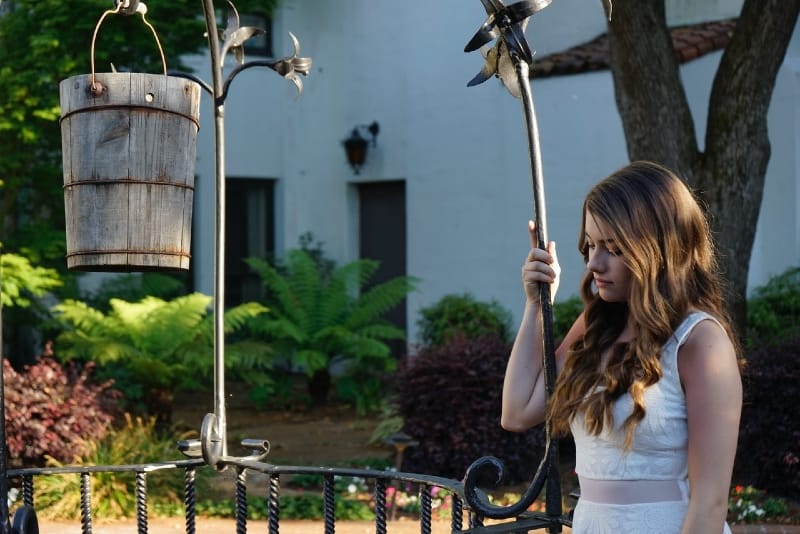Do avoidants regret breaking up? This seems like a reasonable question to ask when there’s such little information provided from their side.
For someone with an avoidant attachment style, relationships are more stressful than for someone with another type of attachment style.
What is the source of these particular feelings? Despite wanting and needing a connection like everyone else, deep down, there’s a fear of losing their freedom.
Their personal freedom is tightly bound to independent decision-making and wishes not to be controlled or dependent on another person.
Avoidants break up because they feel like the other person is doing too much while they can’t do the same thing for them.
They start feeling trapped because they’re not good at voicing their needs or expressing their feelings, which leads to confusion and detachment.
Ultimately, they regret breaking up because they’re even more likely to break up with the people they’re truly in love with because they are scared of intimacy.
When someone starts putting effort into them and the relationship, they feel obliged to do the same, which later leads to feelings of guilt and feeling a burden.
For a relationship to work, there has to be interdependence, which means both partners rely on each other and help each other.
Avoidants don’t like the idea of being responsible for other people and taking care of their emotional needs and instead insist on everybody doing it on their own.
That’s not the way a healthy relationship can progress and that’s why they don’t feel like they’re adequate enough for a relationship in general.
They even feel like all their emotional needs are too much for other people and don’t see the point in bothering them with their feelings.
Behind all of these psychological tactics lies the thought that they’re not good enough.
In their mind, to know they’re not good enough automatically means they don’t deserve the love that has been shown to them.
Finally, all fearful behavior is in essence a way to escape pain and hurt. To run away from love means running away from the possibility of being hurt and experiencing pain.
The pain is part of vulnerability, which is needed in every kind of relationship.
Vulnerability is seen as a threat by avoidants and when they start falling for someone or start to feel deeper emotions, it’s not rare to see them trying to ruin that relationship just to prove to themselves that a stable and safe relationship isn’t possible.
Unfortunately, that’s exactly how they hurt the people they love the most.
Healthy relationships need vulnerability to work and this also implies the freedom to act like yourself. Everybody needs to feel comfortable with their loved ones.
However, avoidants have a hard time letting themself be what they are because of their core belief, which makes them think they’re not enough.
That’s also the reason why they suffer from anxiety and depression and often have an impulse to run away.
They fear showing their true self and being rejected as their true self is, ironically, what makes them reject other people.
What this does is confirm what they believe deep inside and that’s the belief that relationships are the cause of the pain.
This view of relationships comes from their relationships with their caregivers, who taught them either not to depend on anyone but themselves or/and not to show feelings and signs of weakness because they will be somehow punished if they do.
That led to associating strong emotions with pain and fear of rejection.
The same as all the other human beings, they seek connection and understanding but they have a hard time giving others support or satisfying their needs.
This kind of behavior leads to over-explaining and justification of one’s actions or the actions of their partner, just to avoid the truth.
After running away and breaking up with their partner, they feel relieved. Since they still have the same inner desire of connection, they will seek another relationship that will end up the same.
They subconsciously assume beforehand that they will be abandoned once they show their feelings and that’s why they avoid that scenario by abandoning first.
An avoidant’s behavior is generally disloyal and falls short when it comes to dealing with tough times that require support and care for their partner.
For example, most people who leave their partner when they get sick are avoidants.
In a way, this behavior is connected to feelings of being in control, which leaving the relationship first gives them.
Why do they leave?
Avoiding difficulty
Break-ups between balanced individuals usually happen because one of them was initially less attracted to another or there are some bigger problems they don’t know how to solve.
However, partners who appreciate each other first try to solve the problem before leaving each other.
On the other hand, avoidant partners practice don’t-try-so-you-don’t fail tactics, which means they usually leave even before real problems happen.
They are more willing to give up and let their need for independence rule their actions and then fall into the same situation over again with another partner.
It’s a self-induced illusion that something else will fix their inner problem, while they’re not able to face the problem themselves.
It’s easier to leave a difficult situation and fantasize about something new and that’s exactly what they do.
However, one thing has to be considered when we observe their behavior. The fact is that closeness and intimacy, deep feelings and vulnerability trigger anxiety in avoidants.
It’s not surprising that feelings of constant anxiety will become unbearable and exhausting at some point.
They need their distance and can interpret a partner’s actions wrongly, feel threatened and distance themself.
This combined with constant anxiety makes them jump out of the relationship as soon as there is the slightest problem.
They are usually well aware that they’re the one who leaves a relationship first and in some less mature cases, they even pride themselves on it and even feel superior because this brings them a sense of value and some kind of dominance.
The reason for a break-up is usually an attempt from the partner to face the avoidant with their avoiding behavior; for example, asking to explain their actions and behavior, asking for support, etc. and how do avoidants break up? Suddenly and abruptly.
One of the most frequent situations in which they decide to leave or distance from their partner is when it comes to showing commitment, such as defining the relationship, meeting with parents, talking about the future together, an engagement or wedding and so on.
This puts them into panic mode and they end up running away from the burden they didn’t even experience. This response is obviously highly illogical and a consequence of irrational fear.
In a sense, it’s understandable that this kind of person, without self-awareness or an understanding of their problem, will end up ‘helping’ themselves by avoiding the problem altogether.
Their approach to dealing with conflict is to pull away, be silent, downplay their or their partner’s emotions and simply avoid conflict.
If there’s no way they can get away with this behavior, which means that their partner insists on resolving the problem, they will simply leave.
In other words, they do not take responsibility for their behavior without even realizing it. In fact, they’re constantly finding different reasons to justify themselves.
What kinds of reasons they will choose depends on the individual. For example, they can put the blame on the other people in their life, such as their parents or exes or even on their job, beliefs, etc.
It’s obvious why their relationships tend to not last.
They fail to realize that the qualities they search for in other people might not be the problem as much as other people being unable to accept their constant tactics and the way they handle emotions.
It’s possible for avoidants to stay in relationships where they will probably feel unfulfilled and oblivious to the fact that they can change the situation themself.
Still, when a situation arises in which their partner asks for support and help, they might leave.
This is because they subconsciously don’t think they can meet that need and that’s exactly what they want to avoid.
This is the same pain and disappointment they felt in their childhood and subconsciously carried into adulthood and adult relationships.
Specific situations that make them feel like they’re out of control or their emotions trigger their obsession for control, which they express through avoiding responsibility and making themselves feel ‘safe’.
The reason behind defensiveness and avoidance is often rooted in a fear of criticism, which usually surrounds suppressed shame or strong emotions they’re unable to express.
They would rather run away than stay to deal with this problem that needs serious introspection.
This is what keeps the vicious circle intact; facing the problem and then running away from it and so on.
A less frequent case, in which avoidants are the ones who are left first in a relationship, is when their partner has no choice but to give up because of their behavior.
Some of them have a really bad self-image, which they keep showing to their partner, who at one point starts to believe in it and eventually leaves them.
When this happens, it’s just another way for an avoidant to confirm their theories about themselves as insufficient and incapable of a healthy relationship.
They also aren’t the type for long-distance relationships and staying in touch through social media since they usually don’t give their partner enough attention in real life, let alone through online communication.
Every one of us has grown up within accepted social norms and some kind of moral code.
Once our own behavior doesn’t match the learned moral code, we start to doubt ourself and start to feel disappointed in ourself. That’s what happens to an avoidant too, after a failed relationship.
The truth is, people with this style have very little compassion toward themselves and the only way they can resolve their unfulfilling relationship is by deciding that the person they’re involved with is simply ‘not right for them’.
A complicated connection to feelings
People who fit into this profile have a lack of connection to memories, which leads to inconsistency of feeling.
This phenomenon is hard to understand for people who don’t have similar problems and that’s why they probably ask questions like: Do avoidants regret breaking up?
Since they’re not conscious of their prior feelings, they are able to switch between desiring and rejecting randomly.
That’s why when they’re triggered, they tend to and can end a relationship very fast and abrupt because they have no access to their prior memories to understand their own state and behavior.
Unfortunately, they often break up without any reasonable explanation for the other person, which can be extremely difficult.
That’s exactly what makes them appear cruel or emotionless in the eyes of other people.
Since their distancing isn’t completely or at all rational but simply unconscious triggers, they don’t know how to explain their feelings and behavior to their partner or themselves.
Naturally, after this happens, the partner is upset and angry, which in the eyes of the avoidant only confirms that their partner is emotionally too much for them and pushes them away even further.
They are subconsciously putting their partner in a situation where they overreact for obvious reasons, only to reject them for the overreaction they have caused.
They not knowingly hurt their partner to push them away and that’s how they feel in control again.
This kind of behavior is very toxic and damaging to the partner as well as to other people and the relationships they have in life because they probably follow the same pattern.
The fact that an abrupt break-up comes from instinct and not a conscious decision to leave their partner means that they often secretly long for their partner to keep pursuing them and not give up but this too is very difficult for them to express.
The point of engulfment and why it happens
Unsurprisingly, avoidants are disliked for their approach to relationships and especially break-ups for obvious reasons.
However, not all of their ideas are initially wrong. For example, it’s reasonable to expect personal freedom from your partner but, of course, it has to be consensual.
It’s easy to feel trapped in other people’s needs, expectations, etc. and to keep track of your own.
It’s easy to become mentally and emotionally drained in a relationship because relationships are hard work, especially when we’re not aware of our own state.
It’s expected to feel overwhelmed by a relationship and a partner in general if one uses extra strength in expressing things a balanced person has no problem expressing.
This goes for expressing and doing everyday normal things and feelings.
This is even more highlighted when a person with this attachment is in a relationship with a person who doesn’t have a similar problem but in fact has no problem expressing their thoughts and feelings and does so frequently.
It’s not unusual for those who express minimal emotions to end up with the complete opposite type of person who’s very emotionally needy.
As we mentioned earlier, avoidants tend to disconnect from their memories, including memories of emotions, so they have a hard time connecting with feelings as they happen, at the time they happen.
It’s like they need to process the process of the emotion before actually being sure of it and sometimes that process takes a long time.
While this process lasts, they have enough time to rationalize and that’s what they do with everything.
They rationalize to the point where they have justification for themselves and a reason to possibly leave their partner.
Unfortunately, what they don’t realize is their underlying and deep-rooted fear of being abandoned by the person they love.
They are scared of experiencing loss. They are afraid of being abandoned so much that they’re willing to find flaws in their partner rather than face their irrational fear.
Another thing that stops them from having a functional relationship is the fact that they don’t see their partner as someone to rely on but always rely on themselves instead.
It’s obvious that a long-term relationship can’t be possible without partners relying on each other.
Not only when there’s something to deal with but simply to share their current emotional state, the source of their stress, etc.
For example, a partner can provide solutions that another person can’t see because they’re not objective enough.
That’s not their pattern of thought. They taught themselves to first look for solutions and answers on their own instead of asking for another’s opinion or help.
Getting help is one of the toughest things for them to do because it implies the need to be vulnerable.
Moreover, their partner or their relationship often is the source of stress and confusing feelings.
The only way this could be solved is by facing the problem and openly talking about it, which is exactly what they avoid.
They don’t know what to do once they feel guilty toward their partner and they don’t see a way they can solve the existing problems. It’s easier for them to completely shut down and walk away.
This is where and why they’re seen as cowards or simply cruel people but for them, it’s the way they save themselves from potential and pending emotional pain, which is ultimately what all of us do in one way or another.
What happens after a break-up?
These types have a relatively easy time blaming their partner for the failure of their relationship.
Their head is wired to come up with rational explanations as to why they’re not responsible or guilty for something they clearly are.
They rarely go back to their ex-partner after the end of the relationship because, one, they live believing in their own narrative of what happened and two, they don’t feel like dealing with all of the complicated post-break-up feelings even if deep down they long to reunite.
The image of themselves in their mind paints them as a winner because they were the first to call an end to the relationship and proceed to practice no contact, while their ex-partner is the dumpee.
Other than that, they choose to believe that their ex-significant other wasn’t what they needed and wasn’t right for them and fail to notice yet again the same pattern they keep repeating again and again.
This narrative, among other things, keeps their self-confidence in a safe place and keeps their past lovers wondering: Do avoidants regret breaking up? This is because they lack a proper emotional reaction.
However, as we mentioned earlier, since these impulsive break-up decisions are made not by a rational mind but by fear-fueled instincts, they eventually end up in a very confusing state of mind, unable to detect what has led them to that state.
Of course, not every avoidant relationship is the same. Not every break-up can be blamed on them. There are many possible causes and sometimes another person is as ‘guilty’ as them.
This is when it’s usually the case of a toxic relationship and when both partners are severely unaware of their behavior and unwilling to work on themselves.
Moreover, when there is a person who succeeds in getting near the vulnerable part of this type, they usually run away to other people who don’t see through their mask because that’s where they feel safe and protected.
That’s how they prolong their pain and actually end up hurting because they push away the partner who could’ve actually helped them.
They always come back to telling themselves they don’t need anybody because that’s the mechanism they learned in order to protect themselves.
However, because they’re capable of having strong emotions, the same as other humans, once they do have them, they will remember them and have a memory connection they’re usually missing.
That relationship will probably stay in their mind as a close relationship because they intuitively feel that something about that particular person would actually be good for their well-being.
Unfortunately, a lot of them end up denying the need for any kind of deeper relationship and choose to go about their life alone or with occasional short-lived romances, all the while telling themselves (and others) that they haven’t yet met the right person.
In the end, their biggest problem becomes the inability to accept the help of someone who genuinely wants what’s good for them and that’s what creates immense pain in them and the people who love them.
Accepting all challenges in life as something they need to do by themselves is what can lead them to depression, low self-esteem and general dissatisfaction in life.
For a person to be happy, they need to have deep and understanding relationships and connections with other people.
What’s probably the saddest thing of all is knowing that they don’t really want to leave but feel a strong impulse to do so and they can’t explain their actions or at least don’t explain them in a way where they get to the root of the problem.
This ties in with the underlying truth that they’re not actually abandoning the person because of them but because of the deep belief that they’re not enough.
What they do is ‘save the other person from themselves’, even though they probably didn’t see them as something threatening or burdensome at all.
Sadly, they choose to destroy what they built with another person just to run away and fight their battles on their own when they could’ve had a partner on their side who would probably willingly help them.
The break-up aftermath
Types of destructive behavior
Immediately after a break-up, avoidant-style people don’t have too many emotions, which is why many of their ex-partners ask the question we’re answering: Do avoidants regret breaking up?
Initially, they feel relieved and happy that they don’t have to deal with difficult and engulfing emotions but instead are free to do whatever they feel like (which they probably could have while they were in the relationship).
All in all, they don’t show signs of missing their partner, at least not right after the break-up.
While they’re in a relationship, they have the feeling that their current partner can hurt them because they do feel.
However, once their partner is gone, they completely switch and become emotionally disconnected and it almost seems as if they really have an on and off switch.
They enjoy their newfound freedom and control over everything they thought they didn’t have.
This also means that they don’t need to overthink things that were bugging them while they were in the relationship, such as thoughts about their inadequacy and fears of being left, etc.
At this point, they even start thinking about new relationships because they miss the intimacy but hate commitment.
After they engage in shallow post-break-up relationships, they end up with some thoughts that were bugging them in their last relationship.
However, a new person gives them a temporary feeling of purpose and control over their life until the point where illusion shatters it once again.
Of course, this is how some of them built a reputation that can be perceived as negative, depending on the person and their ethical and moral values.
Most bad guys are portrayed as characters who probably have this same attachment system and that’s obviously not a coincidence.
While it feels good and interesting at the beginning of a new adventure, soon it starts to feel underwhelming and fake because there’s no authentic feeling of connection.
That’s where they usually come to realize they miss their old partner with whom they had a close relationship and start feeling like they lost their purpose and disconnected from themselves.
Unfortunately, they realize they love their partner once they’re out of their reach.
With nowhere to go and with nothing but their emotions and thoughts, they usually experience some kind of difficult period or even depression.
It’s not unusual for them to turn to some kind of opiates to turn their mind from painful thoughts and feelings. Essentially, all kinds of opiates are the definition of avoidance.
In parallel with other styles of attachment theory, it’s likely that they’re going to be the ones who spend most of the time alone.
The good thing is they feel good on their own most of the time. Even though they need connection, they’re still most likely to enjoy time alone out of all people.
Their coping mechanism includes their life attitude, which always looks to the future and tries to keep the past in the past, which isn’t necessarily bad.
Denial
Even though their parents were in their life throughout their childhood, they didn’t know how to show emotions or showed them too much, so avoidants learned to push people away from them.
They will be shocked if you leave, as all humans would but they will not ask why, nor will they ask for forgiveness in case they know why.
Sometimes, they will consciously push you away just to feel how much they care about you when you’re gone.
A sense of loneliness is the toughest emotion they can feel, so they desperately search for it while they simultaneously fear real loss.
Their defense walls make them blind to their partner’s emotions, so it’s often surprising for them when their partner finally leaves after they are fed up with all the neglect and lack of communication.
They think all the world desperately needs their attention, while it’s the complete opposite.
In their search of attention and affection, they hide behind self-centrism, not allowing anyone or anything to tell them otherwise.
In their head, the only balance they make is a sense of neediness but in a way that everybody needs them and they don’t need anyone.
That sense of someone always being available to them is fake but it will sometimes make them look like they are pestering someone for their attention, while they feel the complete opposite.
In those cases, when this type finally realizes they;re left completely alone, they will start figuring out, often unconsciously, that the main goal of every relationship is treating each other well.
They face their loss, still not processing their emotions completely, only to end up once again protecting themselves with their walls.
It is very important to them to leave and not to be the one left because otherwise, it will trigger their childhood abandonment traumas.
In the case that they are broken up with, they can go to such lengths of distancing themselves as to completely change their place of living, job and even the people they are surrounded by.
Since they cannot process emotions in a mature way, nor did they have anyone in their childhood to show and teach them how, they will run from them as fast as they can, even if they subconsciously know they care for them.
Caring for them is not sharing in the sense of the emotions; caring for them is running away, trying to block and erase all those emotions that come with love for someone.
It seems like they don’t love themselves enough to allow others to love them completely, with all their good and bad sides. And if you don’t love yourself, how will you love anybody else?
Regret and missing their partner
Do avoidants regret breaking up?
Well, once they’re far away and their ex-partner is out of touch, that’s when their feelings start to collapse into something painful, as it always does when it comes to suppressed emotions.
Once they don’t feel overwhelmed by the direct presence, words or actions of their ex-significant other, that’s when they become aware of how much they need intimacy and closeness.
If their ex persists in not reaching out to them, they might feel more and more miserable and even then stay committed to blaming their ex for everything and even blaming them for leaving them, even if it’s the other way around.
There’s also an interesting pattern that includes a sense of enjoyment once they know their ex has moved on because that how they validate their own belief that they’re unable to be in a relationship or that they’re unlovable.
At this point, an avoidant person might even express some kind of romantic feelings, not to their ex but to themselves or their best friends, for example.
They feel safe to finally show their emotions once they feel there’s no danger of being engulfed by their ex because he or she is permanently gone.
Keeping in touch with an ex…?
Avoidant attachment types don’t know how to fix things, so they won’t make contact with their ex because that would create enormous feelings of exposure and uneasiness.
They don’t like to be out of control of a situation, so they avoid things that take their independence away or even like making amends with the people who hurt them.
Their doings come from their lack of trust in other people because they have learned throughout their life that nobody has any interests close to their heart but themselves.
If someone else has control of the situation, this type will feel like they could take advantage of them at any given time.
Avoidants are also very unforgiving when it comes to relationships or people acting a certain way about them, so they are really bad at making things last; it is always easier to start something new with somebody completely unknown, that is, until the mask falls and they sees the person for who they really are and runs away.
They don’t have enough courage or patience to deal with people intimately or for long periods of time.
Every form of caring feels draining to them because it is much easier to just not care about people, no matter how much other people make them feel desired or safe.
Most of the time, this type is not sure what it really feels like because they are, in their own way, disconnected from their deep emotions.
That way, they feel like they remain in control, even if someone else really is pulling all the strings and practically deciding everything for them.
On the contrary, they really like to play chase games because it makes them feel bigger, better, more desired, etc.
It seems that their wishes are never truly clear or understood by other people, mainly because they keep them vague because it again makes them feel like they are in control of the situation.
From all of this, stubbornness is birthed and they will more often choose to be lonely than to confront the people who hurt them or try to make any amends.
That would mean they would have to process really large and heavy emotions and like its name says, an avoidant type will just avoid it.
Because of this avoidance, they really don’t know how to process those emotions even if they wanted to.
Sometimes, culpability becomes so strong and insufferable that they will try to make amends with their ex-partner but in most cases, it will be a game of chase that’s full of vague emotions, until the ex-partner addresses all the problems and the avoidant type, once again, runs away.
Avoidants won’t give or ask for forgiveness most of the time because they have strong defensive walls built around them for fear of their own vulnerability.
Most often, they will just cut ties with razor-sharp scissors and move on with their life because they learned to run from their own feelings, a sense of guilt, and most importantly, from feeling disliked by the other person.
Other people may perceive them as a coward because of this.
Most avoidant types won’t be friends or even be friendly after a relationship ends because of their discomfort, which emerges from the lack of control and possible conflict situations.
They will avoid conflict or talking about their or somebody else’s emotions at all costs.
Like most humans do, they also like to feel support from other people, so sometimes it can happen that they stay in touch with some of their ex-partners, as long as the conversations and relationships are light and there is no talking about emotions whatsoever.
They don’t like to be fully invested in things, so this is another way of theirs to protect themselves and hide behind their walls.
Since it’s hard to find someone to be in a nonreciprocal emotive relationship, light communication with ex-partners will give an avoidant type a sense of comfort and stability but will also make them invest even less into a new relationship and build their character to be more avoidant.
Since communication for them is important to not be very emotional or feelings-oriented, they will find large amounts of satisfaction leading vague conversations about, well, practically nothing important.
They are lords of small talk.
If an avoidant type is your ex who you cannot get over, well, I have bad news for you.
They will probably never come back to you and if they do, they will just play one of their chase games to boost their ego, while you sit there not knowing what hit you.
They like to keep their distance or keep you distant from their walls as insurance that they will not be demolished.
Since it is not very mature to blame anyone but yourself for your doings or even letting them do anything hurtful to you, it is better to work on building your character and learn to avoid avoidants so they don’t break you or your heart with their mindless chasing.
Avoidants are unforgiving to themselves and to all the people they come in contact with but all of us need forgiveness sometimes or just a bare understanding of our feelings.
Sometimes it is nice to just see that someone is trying to understand you, nevermind if they really do.
Reciprocity is something we should all seek in some form or another and stop seeking in an avoidant type of partner. If they avoid their own feelings, imagine how they will avoid yours.
Nobody likes to be avoided and nobody likes to feel cramped in a relationship.
If you need to think multiple times about voicing your emotions, problems or comfortableness, become an avoidant type for a second and run.
Sometimes and just sometimes, it is okay to be avoidant; if you avoid avoidants.
Other types of attachment styles
Other than avoidant attachment styles (which includes the dismissive-avoidant and fearful-avoidant styles), there are two more types that express different behavioral patterns and needs based on our subconscious; secure and anxious.
All of them are different and have a different forming path. Some people with certain attachment styles appear to be more rational, while others appear to be more passionate and so on.
Knowing your attachment system means a better understanding of relationships in your life and especially romantic relationships because it allows you to comprehend your innermost needs and emotions and how they manifest in everyday life.
Your type of attachment style can tell you about the way you cause and deal with conflict, about the way you show or restrict love and about your childhood traumas that triggered a certain type of behavior later on in life.
You can discover your type by taking online quizzes but it’s probable that you’ll recognize yourself in one of the descriptions below.
Secure
The secure attachment style is considered the most balanced and healthiest of attachment styles.
What differentiates the secure type from other types is the fact that they, for example, don’t see break-ups as something tragic or they ignore them.
They see what they can learn from their experience and what they need and don’t need to be happy.
That, of course, doesn’t exclude normal emotional processes as grieving after parting with their partner.
Break-ups are difficult for every type because our life is surrounded by emotional connections and their quality throughout life.
However, a secure type, unlike other types, has a clearer view of their feelings and is less likely to engage in destructive behavior because of that.
They can rationalize a situation without overrationalizing it and they can feel grief without being needy or destructive.
They also know that the fact that they are or they are not in a relationship doesn’t say anything about them as a person. They are neither dependent nor avoidant.
All in all, they have a healthy self-image and think of themselves positively, which allows them to have healthy relationships with other people in their life, other than romantic partners.
They have no problem depending on others when it comes to matters in which they need help and they don’t have a problem with others depending on them.
Having a healthy relationship with family and friends is also one of the most important things in the process of healing from a break-up.
Anxious
An anxious attachment style is typical for people who express clingy behavior in a relationship.
The number one reason that causes this behavior is a lack of reassurance at an early age, which should have been given by their parents.
Since they have a very needy and clingy attachment style, they’re mostly interested in romantic relationships in particular.
Naturally, this is why their parting from a partner is the most painful of all the attachment styles.
The most frequent problem with anxious partners is their belief they are not good enough as they are.
It’s not surprising that without changing this particular belief, over time, they will convince themselves and possibly their partner of this lie.
At the same time, they put their partner on a pedestal and treat them like they’re better than them. This unhealthy approach magnifies the pain once they break up with their partner.
They have a hard time getting over a romantic relationship and moving on with their life. They’re most likely to message, call and try to reunite with an ex-boyfriend or ex-girlfriend.
The fact that they’re so immersed in their romantic relationship means there’s a possibility they don’t have enough other people in their life, which means they don’t have a lot of people to help them deal with their post-break-up pain.
Of course, combined with a poor self-image, that’s also the reason why an anxious person decides to go back to their ex.
Dismissive-avoidant
Avoidant styles are known to stem from a lack of caregivers’/parents’ attention in childhood. The aftermath of that is an inability to engage in intimate relationships and a fear of being vulnerable.
Even though they stem from the same cause, there are two significantly different avoidant styles.
The first type is the so-called dismissive-avoidant. They are characterized by rather bad behavior toward their partner because they think of them as less than they are, which exudes narcissistic traits.
It’s not surprising that many ex-partners ask if dismissive avoidants regret breaking up, since they appear so cold. It’s not unusual for a dismissive-avoidant to pretend they’re unfazed by a break-up and keep searching for a rational explanation in their mind so they can avoid the pain.
Obviously, that’s also the reason why their past relationships could not grow.
Their mind is trained to believe that every relationship is essentially actually a loss of personal freedom, which creates even more difficulties and a hard time for making profound connections with other people.
However, rationalized or not, they hurt deep inside themselves and all those unprocessed emotions pile up and only cause even more abrupt and sudden behaviors such as surprise break-ups, leaving with no explanation, etc.
Their suppressed emotions can be dealt with in various ways and some of them are destructive and unhealthy, such as some kind of addiction which is also seen in an avoidant’s habits.
Fearful-avoidant
The difference between dismissive and fearful avoidants is the fact that they’re not as good or effective at masking and ignoring their feelings.
For a fearful-avoidant, relationships are a double-edged sword. On the one hand, they’re scared of intimacy but on the other hand, they crave partnerships because of their poor self-image and self-esteem.
Essentially, they search for what they run from, which is obviously a vicious circle that doesn’t make sense and leads nowhere.
Their inner belief that they’re not good enough and therefore need to pull away is a self-fulfilling prophecy because that’s what ends up happening.
What often happens with this avoidant style is that they end up dating a person who is not the best choice for them and doesn’t make them feel safe, while they run away from those who are actually a better option for them.
This ends up as either a toxic relationship or a casual relationship that includes intimacy but isn’t officially considered a relationship.
Unsurprisingly, this leads anxious-avoidants to feel extremely confused about their relationship and to end it because, on one hand, they are trying their best to stay untouched by what’s happening but on the other, they feel very hurt, abandoned and alone.
Rebound relationships, short and passionate relationships and everything that’s similar to those are what they usually end up in, until the point when they become more self-aware and try to change their belief system and approach.
If there’s no honest self-reflection or a genuine change in behavior in this type, nothing will work out.
Wrap up: Balance is possible if you’re willing to put the effort in
At the end of the day, people’s behavior is not something that’s set in stone. Do avoidants regret breaking up? As we already concluded, it depends on many things.
They are human like everybody else and have their own coping mechanism which allows them to avoid pain and search for pleasure.
The only questions are whether they are aware enough and do they love enough?
We all have choices in front of us and we choose what we want to accomplish in our life.
A lot of people aren’t well aware of how much their inner process reflects on their outer life.
They are not aware of the fact that their actions are controlled by their own needs and fears that exist subconsciously.
Facing our innermost fears is a very scary thing to do and not everyone is up to the challenge. However, it’s the only way to make real progress and understand our own being on a deep level.
Nobody can give us as much love, understanding and appreciation as we can give to ourself.
Nobody knows us better than we know ourself and that’s exactly why we should work harder on understanding ourself even better.
True self-love and genuine self-acceptance are what’s going to ultimately better our relationships with others and make space for healthy ones, including romantic relationships which are the biggest but most rewarding test of all.
Relationship issues are going to be less intense once we learn to love ourself.
Balance is possible if we’re willing to put in the work. We’re not doomed or fully convinced of our current state of mind, which is not our whole and integrated identity.
Until we get to know ourself with our pain, we don’t really know who we are.
The early pain in our life was a catalyst for the disintegration of our true self and that’s why we need to understand it and heal it.
Instead of choosing to be defined by yet another label, be it attachment theory or something else, choose who you want to be and become that.




























